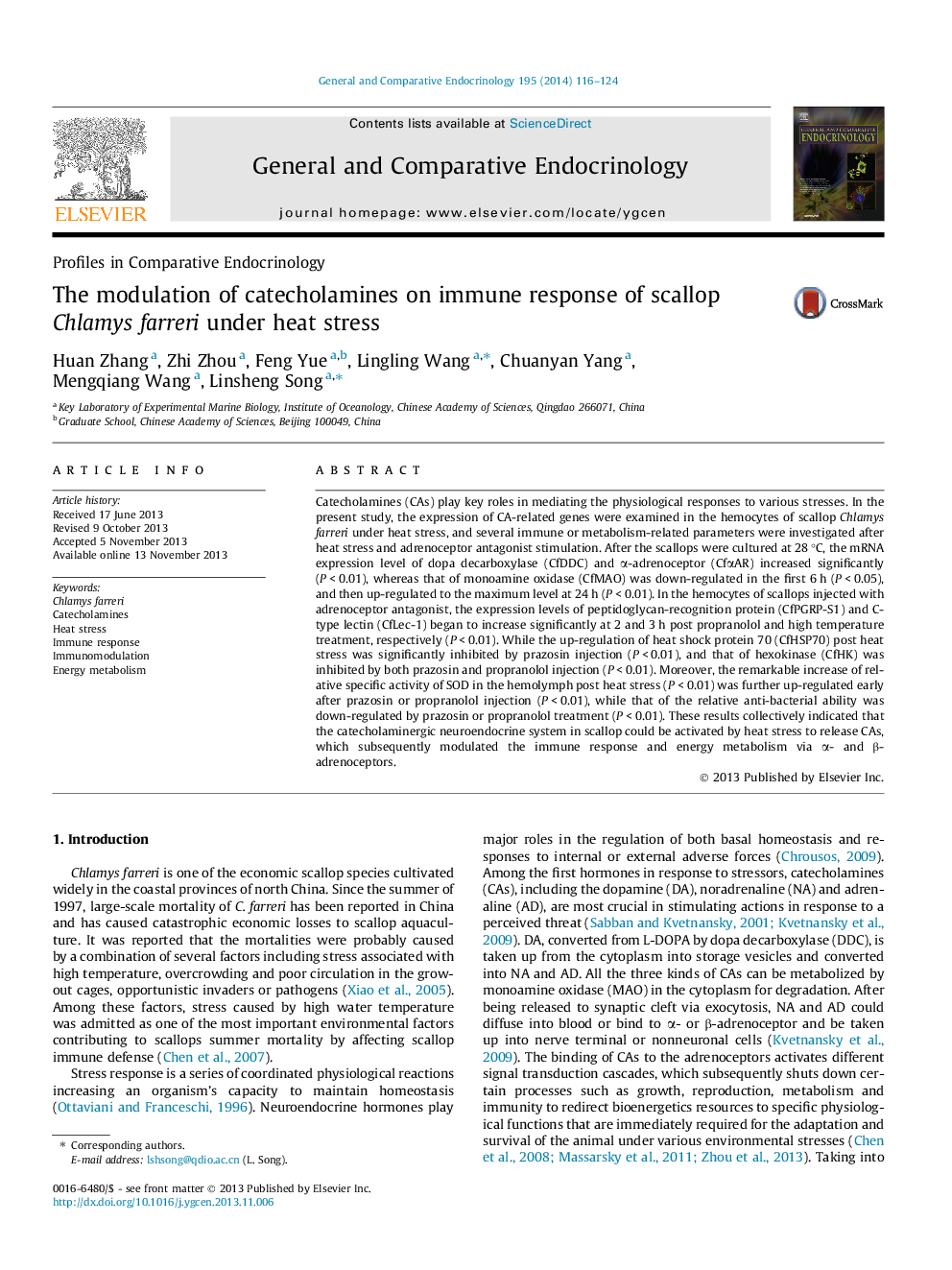| Article ID | Journal | Published Year | Pages | File Type |
|---|---|---|---|---|
| 5901208 | General and Comparative Endocrinology | 2014 | 9 Pages |
Abstract
Catecholamines (CAs) play key roles in mediating the physiological responses to various stresses. In the present study, the expression of CA-related genes were examined in the hemocytes of scallop Chlamys farreri under heat stress, and several immune or metabolism-related parameters were investigated after heat stress and adrenoceptor antagonist stimulation. After the scallops were cultured at 28 °C, the mRNA expression level of dopa decarboxylase (CfDDC) and α-adrenoceptor (CfαAR) increased significantly (P < 0.01), whereas that of monoamine oxidase (CfMAO) was down-regulated in the first 6 h (P < 0.05), and then up-regulated to the maximum level at 24 h (P < 0.01). In the hemocytes of scallops injected with adrenoceptor antagonist, the expression levels of peptidoglycan-recognition protein (CfPGRP-S1) and C-type lectin (CfLec-1) began to increase significantly at 2 and 3 h post propranolol and high temperature treatment, respectively (P < 0.01). While the up-regulation of heat shock protein 70 (CfHSP70) post heat stress was significantly inhibited by prazosin injection (P < 0.01), and that of hexokinase (CfHK) was inhibited by both prazosin and propranolol injection (P < 0.01). Moreover, the remarkable increase of relative specific activity of SOD in the hemolymph post heat stress (P < 0.01) was further up-regulated early after prazosin or propranolol injection (P < 0.01), while that of the relative anti-bacterial ability was down-regulated by prazosin or propranolol treatment (P < 0.01). These results collectively indicated that the catecholaminergic neuroendocrine system in scallop could be activated by heat stress to release CAs, which subsequently modulated the immune response and energy metabolism via α- and β-adrenoceptors.
Related Topics
Life Sciences
Biochemistry, Genetics and Molecular Biology
Endocrinology
Authors
Huan Zhang, Zhi Zhou, Feng Yue, Lingling Wang, Chuanyan Yang, Mengqiang Wang, Linsheng Song,
